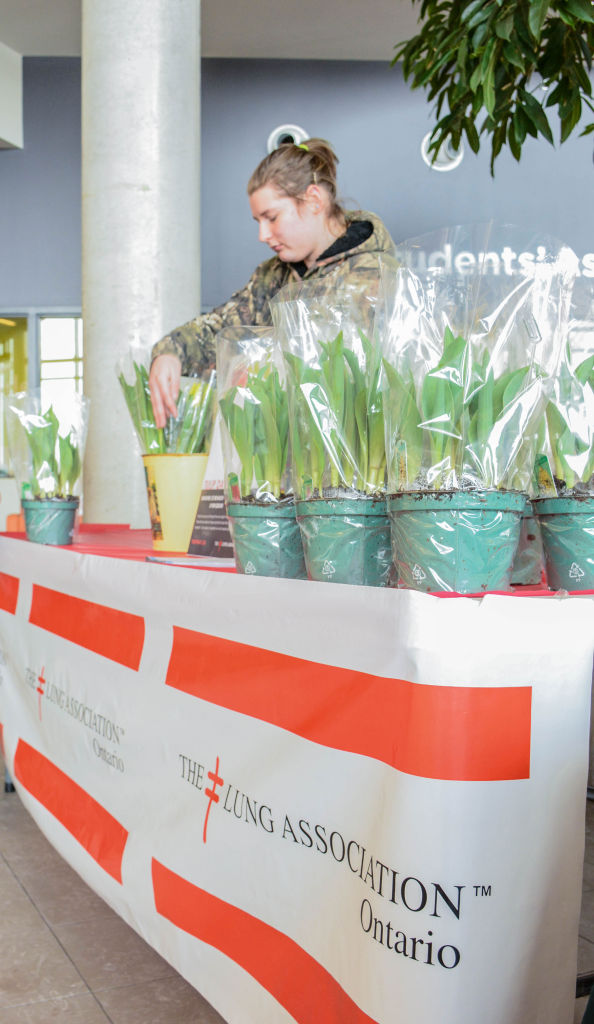
A tulip may seem like a simple plant: a stem, a couple of leaves, and a few petals. But it has become the symbol for chronic illness that is affecting one in five Ontarians on a daily basis.
The Lung Association adopted the tulip as their symbol for lung health and respiratory diseases since the first Tulip Day was held 19 years ago.
Tulips are a part of a small group of flowering plants that give off little to no scent.
This is imperative for people with chronic illnesses such as asthma, bronchitis, chronic obstructive pulmonary disease and emphysema, to name a few.
This makes them the perfect symbol to acknowledge that some people have trouble breathing on a daily basis.
“It’s a flower they can enjoy without having problems,” said Brandy Thibeault-Bertrand who is carrying out her placement with the Lung Association for Algonquin’s event management program.
As a volunteer, Bertrand was in charge of setting up and selling tulips in the Student Commons on March 2 as part of a yearly campaign to raise funds and awareness for respiratory health and research.
“This activity would simply not be possible without the consistent help of Algonquin students on placement,” said Melanie Estable-Porter, Corporate and Community Development Officer at the Lung Association.
Although the Lung Association has been present on Algonquin campus each year, and in various office buildings and businesses across the city, breathing is a very easy topic to overlook.
Many locations across the city are designated fragrant-free. Carleton University has these spaces scattered across its campus, and many office buildings and businesses across Ottawa have adopted this rule, not to mention restaurants, bars, and patios, which have been smoke-free since 2006.
Algonquin’s only odour-free space is in the change rooms at the Fitness Zone where posters mark the area as a scent-free zone. However, this is self-policed and therefore left up to students to discipline themselves on the use of fragrances in the change rooms.
This begs the question that perhaps Algonquin should be doing more to offer a comfortable environment for those suffering from invisible respiratory illnesses.
“It does affect people’s concentration sometimes, it might affect their studies,” said Bertrand.
Despite the lack of available odour-free space on campus, Tulip Day was a success.
“Combined sales this year for the On-Site locations will add up to approximately $5,000. This amount is added to the approximately $19,000 collected in the pre-sales during February from businesses around the region,” said Porter.
“We are already planning for next year, and welcome student engagement,” she said.
The Lung Association is a non-profit organization that represents a national body of researchers, educators and partners that are centered around promoting lung health and awareness for respiratory diseases that affect a vast number of people across Canada.


